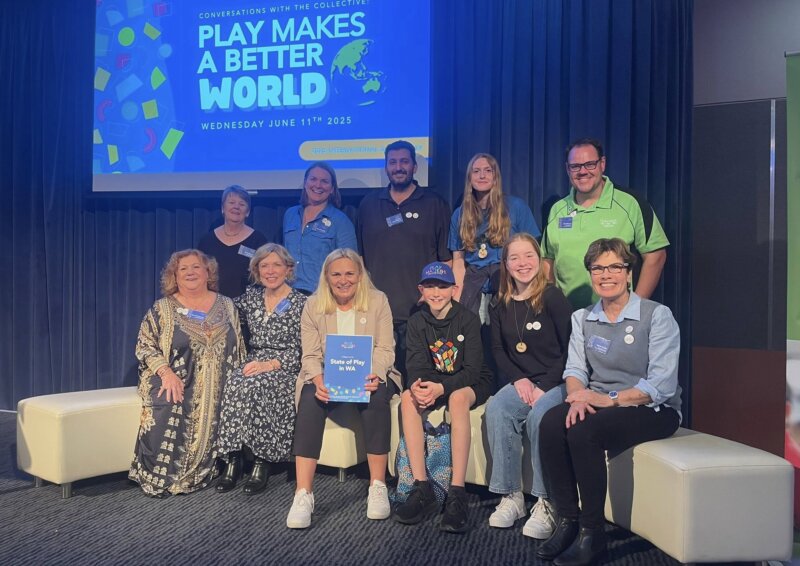After more than a decade of dedicated advocacy, Western Australia will become the first state in the country to develop a government-led Play Strategy, an announcement that marks a significant win for children, families, educators and community advocates. The news was formally delivered by Early Childhood Minister Sabine Winton on 11 June 2025 during the Play Matters Collective’s International Day of Play event.
The strategy will be developed by the newly established Office of Early Childhood, which will sit within the Department of the Premier and Cabinet. The Office has been allocated $4.9 million in the 2025–26 State Budget to lead this work, alongside $28.9 million to support full-time kindy trials, curriculum development, infrastructure upgrades and workforce initiatives.
Minister Winton highlighted the importance of the Play Strategy in supporting children’s cognitive, emotional, physical and social development. She was joined by Commissioner for Children and Young People, Ms Jacqueline McGowan-Jones, who publicly endorsed the strategy and acknowledged the collective effort that made this milestone possible.
For the Play Matters Collective, a dedicated volunteer committee, comprised of passionate academics and professionals, the announcement is the culmination of a long and passionate campaign. Committee member Marcelle Saratsis described the moment as both deeply affirming.
“Our dream was for the strategy to become a guiding tool – not only for educators but for the broader community. It has the potential to influence policy across sectors like housing, health and community services by keeping play central to conversations about children’s wellbeing”, Saratsis said.
She noted the strategic placement of the Office of Early Childhood within the Premier and Cabinet portfolio as a sign of genuine, cross-sector commitment.
Dr Sandra Hesterman, Committee Lead of the Play Matters Collective and Director of Early Childhood Education at Murdoch University, reflected on the long road to this achievement.
“It’s been a long journey — definitely not for the faint-hearted. When we looked at Play Scotland as a model, we saw it took them around a decade too. This kind of systemic change takes time, and what got us here was relentless advocacy, relationship building, and community action”, Hesterman said.
Dr Hesterman recalled early discussions within the ECA WA Branch around 2013, where feedback from members raised growing concern about the erosion of play in early learning. “That prompted our commitment to raising community awareness and building a case for a strategy.”
Key turning points included securing the support of the WA Commissioner for Children and Young People, at the time Colin Pettit, who encouraged the formation of the Play Matters Collective.
“That was crucial. It allowed us to broaden our reach, include young people’s voices and draw in a wider range of stakeholders”, Hesterman added.
While the announcement marks a significant milestone, the Play Matters Collective acknowledges that the journey is far from over.
Saratsis noted, “The strategy has the potential to go beyond the early years—to reflect play as a lifelong right and experience. There’s still much to consider as conversations unfold around what the strategy might include and how it could be implemented.”
The Play Matters Collective encourages educators, families, policymakers, and community organisations to stay engaged and contribute to the evolving dialogue. After all, play continues to matter—at every stage of life.
To add your voice and stand with others championing the right to play, sign the Play Charter and join the movement.
A special thanks to Dr Sandra Hesterman and Marcelle Saratsis for generously sharing their time and insights with us.



